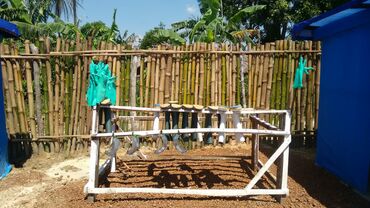Status of Ebola emergency preparedness in Belgium and Romania: ECDC reports identify strengths and vulnerabilities
The peer-review visits identified some common good practices as well as a large degree of similarity in the challenges faced in preparing for possible Ebola cases.
With the launch today of two additional reports on Ebola emergency preparedness in EU Member States, ECDC completes the series of publications presenting outcomes of peer-review country visits focused on supporting national authorities in reviewing their public health emergency systems.
The two reports present the results of the country visits to Belgium and Romania and are published ahead of the high-level conference on ‘Lessons learned for public health from the Ebola outbreak in West Africa – how to improve preparedness and response in the EU for future outbreaks’ which takes place in Luxembourg on 12-14 October, co-organized by the European Commission and the Luxembourg Presidency of the Council of the European Union.
The country visits on Ebola emergency preparedness were performed in March 2015 by expert teams from ECDC and from other EU Member States, in the format of peer-review discussions with national authorities and upon invitation by the countries. The focus was on preparedness activities, capacity strengthening, and lessons learned in response to the Ebola health threat. The critical areas of the case management pathway of actual or suspect Ebola cases reviewed were: points of entry, community preparedness, inland transportation, designated treatment hospital and medical evacuation.
The series includes two other publications launched earlier this year: A mission report with results of the country visit to Portugal; as well as a technical report with a summary of the main strengths and vulnerabilities of Ebola emergency preparedness in the three EU Member States.
Overall, the three peer-review visits identified some common good practices as well as a large degree of similarity in the challenges faced in preparing for possible Ebola cases. Common good practices included: The recognition of simulation exercises as a good tool for learning; improvements in cross-sectoral coordination while preparing for Ebola response; the use of ‘one-stop shop’ for information on Ebola provided to citizens; use of lessons learned from past events–such as SARS, A(H1N1) pandemic influenza, MERS CoV and avian influenza, among others. Common challenges included: Resourcing, use of case definitions, obtaining and deploying personal protective equipment, need for a comprehensive evaluation plan so that lessons learned are used to improve protocols and guidance, interoperability of plans between various sectors, among others.
Read the reports of the peer-review country visits on Ebola emergency preparedness
- Ebola preparedness peer review mission, Romania
- Public health emergency preparedness for cases of viral haemorrhagic fever (Ebola) in Belgium: a peer review
- Public health emergency preparedness for cases of viral haemorrhagic fever (Ebola) in Portugal: a peer review
- Technical report Ebola emergency preparedness in EU Member States: Conclusions from peer-review visits to Belgium, Portugal and Romania






